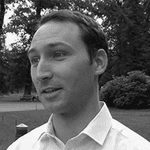Event Recording:
The failure to stem the tide of biodiversity loss, or to address the deeply related issue of climate change, demands we quickly find more ambitious and more coherent approaches to tackling these challenges.
Nature-based Solutions (NbS) are one such family of approaches that has recently gained prominence in international policy and business discourse. Broadly defined as actions that involve working with nature to address societal goals, NbS are being widely hailed as a win-win for addressing biodiversity loss and climate change. However, this win-win scenario is not guaranteed.
Some NbS - particularly those involving planting trees in naturally treeless habitats - can have negative outcomes for climate change mitigation, biodiversity and local peoples’ livelihoods. There are also critical questions around the timeframes over which NbS can help tackle the biodiversity and climate crises given the negative impacts of warming on the health of the biosphere.
In the second discussion in the Oxford Net Zero Series, hosted by the Oxford Martin School, Professor Nathalie Seddon, will bring together interdisciplinary researchers and practitioners to explore the value and limits of working with nature to address climate change and why NbS must both support biodiversity and be implemented with, by and for people, if they are to provide benefits over the longterm.

Professor Nathalie Seddon
Director, Nature-based Solutions Initiative
Nathalie Seddon is Professor of Biodiversity at the University of Oxford (Zoology) and Founding Director of the Nature-based Solutions Initiative (www.naturebasedsolutionsinitiative.org), an interdisciplinary programme of research, policy advice and education aimed at increasing understanding of the ecological and socio-economic effectiveness of nature-based solutions to global challenges.
After training as an evolutionary ecologist at Cambridge University, she developed broad research interests in understanding the origins and maintenance of biodiversity and its relationship with global change. She is a Senior Associate of the International Institute for Environment and Development and a Senior Fellow of the Oxford Martin School. Nathalie advises governments, UN agencies and businesses on Nature-based Solutions and is a Friend of CoP26, i.e. one of 28 global experts currently advising the UK government on CoP26.

Dr Cécile Girardin
Technical Director, Nature Based Solutions Initiative; Science Lead, Oxford Biodiversity Network
Cécile combines years of experience in climate change policy analysis with a background in tropical ecology and thorough understanding of forest ecosystem functioning to provide a unique multidisciplinary approach to her work. Her research focuses on the potential for Nature-based Solutions to respond to climate change. She is an expert on the ecosystem functioning and carbon dynamics of tropical forests across the globe, and their response to a rapidly changing climate.
Cécile trained as a biologist and environmental scientists at Imperial College, London, worked as a consultant for Ecosecurities and Environmental Resources Management Ltd, completed a DPhil the University of Oxford, and worked for the UN-REDD+ team of the United Nation Food and Agriculture Organisation, where she was involved in developing REDD+ readiness programmes. Cécile Girardin is a scientist and an artist @cecilegirardin.

Dr Stephen Smith
Executive Director, Oxford Net Zero
Dr Steve Smith joins the Smith School of Enterprise and the Environment from the UK Department for Business, Energy and Industrial Strategy (BEIS) where he co-led the Climate Science Team for two years. He played a key role in the legislation of the Net Zero emissions target last year, and on developing the Government's approach to greenhouse gas removal. As well as advising ministers and policy teams he oversaw several areas of climate research, including the Met Office Hadley Centre Climate Programme, the Greenhouse Gas Removal Programme co-funded with UKRI, and understanding of carbon sources and sinks on land for the UK emissions inventory.
Before joining BEIS, Steve was Head of Science at the Committee on Climate Change. There he was involved in setting the UK's 2050 target and carbon budgets, as well as starting up the committee's work on climate adaptation. He gained a PhD in atmospheric physics from Imperial College London after studying Physics at Oxford. He is a fellow of the Royal Meteorological Society and of the Cambridge Centre for Science and Policy.
Keep in touch
If you found this page useful, sign up to our monthly digest of the latest news and events
Subscribe